The Firehole River did not want me to pass. The green churning water, at least 10 feet deep here, was pounding me as it raged through a narrow channel while I clung to a slippery rock wall that rose 15 feet above me. I was trying to make my way against the fierce current behind my two sons, ages 16 and 14 at the time. These were strapping boys. The oldest, Gus, was a competitive swimmer; Jeb was on a rock-climbing team. They were moving easily through the water toward the goal: a ledge where we’d be able to climb up and launch ourselves into the rapids so that we could ride 250 feet through the canyon. We saw other people washing by us, hooting and laughing. I noticed that not one of them was my age (50-plus); they all looked like people who bungee jumped and believed in their invincibility.
I saw this vacation as one of the last chances to travel as a family before the boys headed out into the world.
As I struggled to get around this particularly powerful stretch of rapids, I realized I no longer believed in my invincibility. I was too old for that, which meant I was probably too old to be out in the rapids on the western edge of Yellowstone National Park, but I desperately wanted to keep up with the boys. I had done most everything with them—jumped in mud puddles, rode roller coasters in the front seat with my hands up, skied down black-diamond slopes. I’d always thought of myself as a “fun” mom, but they were getting to be young men, and it was harder to do what they did. I saw this family road trip—the summer before our oldest left for college—as one of the last chances my husband Robb and I would have to travel together as a family before the boys headed out into the world.
Family Road Trip: Into the Belly of the Little Beast
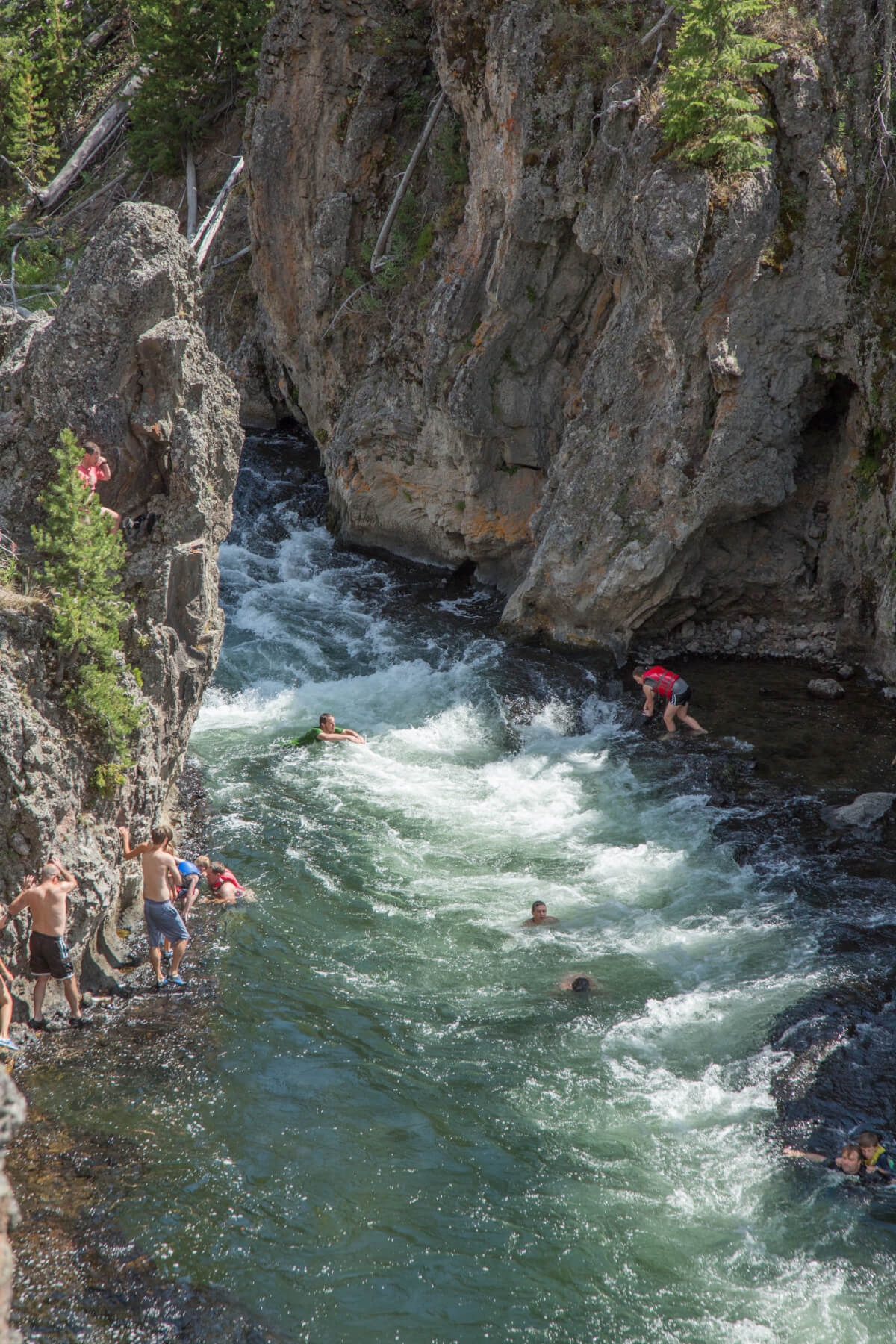
The slotted canyon where adventurers take a ride down the rapids of Yellowstone’s Firehole River.
For this trip, my husband and I decided to rent an RV in Denver—a 26-foot long Coachman Freelander we promptly nicknamed the Little Beast—and take it through what we consider the best of the West: Wyoming and Montana, where the empty spaces—with clouds casting creeping penumbras over stark grassland valleys—are as invigorating as the horizon views of tsunami-wave mountain ranges.
Part of the appeal of this kind of family road trip was that we didn’t need a firm itinerary. With plenty of campgrounds and (usually) no reservations needed, we could follow our whims. We knew that such close proximity to teenagers for an extended time presented inherent risks to sanity—which explained the case of wine I’d packed—but I was hoping that being away from internet, Xbox, and reliable cell service would draw us together again. That once more I could be a mom who was fully plugged into her kids’ lives.
I was hoping that being away from internet, Xbox, and reliable cell service would draw us together again.
During the two-week family road trip in our 200-square-foot box, I was thrilled that we had many opportunities for long talks. At one point, on the trail to Cascade Lake in Yellowstone, a bear scare helped the conversation along. After a malfunction of the bear repellent spray, which ended up right in Gus’s eyes, we decided the best bear thwarter was loud talking. Jeb screamed his plans to ask some girl to one of those horror movies that I tried to avoid. Gus talked animatedly about how he hoped, with the aerospace degree he’d begin pursuing in a few months, to design crafts that would someday discover the intelligent life he was sure was out there. Don’t ask how we segued from romance to science fiction.
It had been a while since we’d had better, more prolonged discussions about who the boys were becoming. They were speaking to us more as equals, as young men with plans and dreams, and the bittersweet part of that was the dreams didn’t include us. I relished the time to soak them in—employing some magical thinking that if I was just mindful enough, time would slow down.
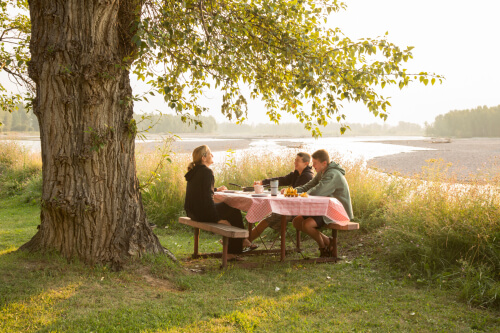
The author and her two sons playing cards at a campsite near Flat Head Lake in Montana.
One day in Montana, Robb and the boys floated down the Madison River on inner tubes. I was assigned the nerve-wracking duty of dropping them off, then driving the Beast four miles to the pick-up point. Steering that wide box on a small road felt like maneuvering a bull along a tightrope. I pulled over gracelessly at a bridge, and after a short nap in the back bedroom (one of the pleasures of RV-ing: your hotel room comes with you), I saw the three of them coming around a bend in the river. Jeb was standing up on his tube; Gus and Robb were bumping into him, trying to topple him.
I got out of the Beast and realized I should have grabbed the camera. But, really, a photo couldn’t have captured what I was seeing—the joy and the playfulness, just as pure as when the boys were little and the three of them used to fake-wrestle all across our living room carpet. I decided to make my own mental image—complete with sound (laughs and hoots echoing off a canyon wall) and the smell of rain that was on the wind. It was one of those sensory snapshots I knew I would come back to once they were grown and gone. I swung my hand over my head like a metronome, and with cupped hands, they paddled toward me.
“Mom, let’s go again; you should do it this time,” Jeb said.
I eyed the sky, which was turning an angry steel-wood gray, and gathered my boys protectively. “I will, another time.”
The “Watch Me, Mom” Moment
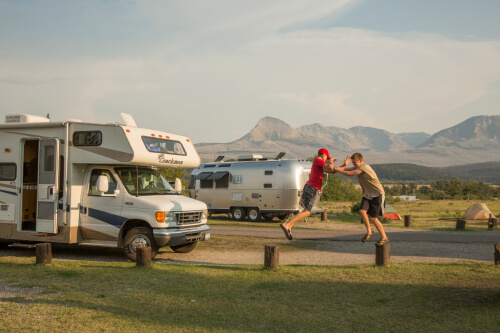
The boys being typical siblings at a campground in Glacier National Park.
In Glacier National Park, we were advised by neighbors in the RV camping grounds to try a trek up to Iceberg Lake. A couple of hours into the hike, we crossed a broad valley awash with purple flowers, orange Indian paintbrush, and huckleberry bushes. Soon after, we came to a bowl of striated stone face. At the base was a small stretch of water of a blue usually only seen in photoshopped ads for Caribbean vacations. We saw why this lake got its name; floating on the water’s surface like fat clouds in a brilliant sky, were icebergs—icebergs in August! Some were flat, some peaked, most no bigger than a king-sized bed.
I wanted to tell them to come back. I thought about what would happen if one of the icebergs cracked.
The boys urgently wanted to be on top of an iceberg, and when they found one floating near a boulder on the shore, they checked its stability with a stick. Then they jumped on and, thrilled to have landed solidly, they raised their arms in triumphant bodybuilder poses. Emboldened, they leapt on other nearby icebergs until they were almost in the middle of the lake.
I wanted to tell them to come back. I thought about what would happen if one of the icebergs cracked. How deep was the water in the center? Would they get stuck under a shelf of ice? But against all I know as a mother, I resisted the urge to stop them. They were big enough to look after themselves. They were big enough to look after me, actually.
A Helping Hand
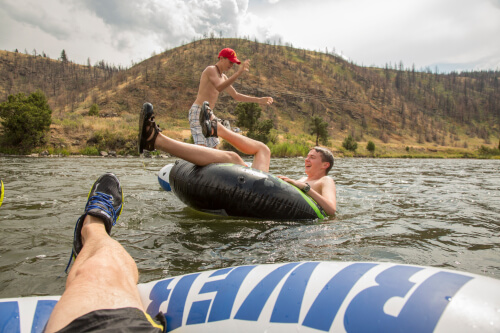
More fun on a float down the Madison River in Montana.
I thought back to our swim in the Firehole River a few days earlier, when I was losing my strength trying to fight the robust current in one section. I had considered letting go and taking my ride from there, even though it would have been shorter. But I was determined to not give up so easily. I slipped my fingers into a crack in the rock and pulled with as much force as my yoga-practicing arms would allow.
The turning of tables was dizzying—particularly in the fast-moving water.
Just then, my youngest, Jeb, the rock climber, stretched one arm back and grabbed my hand, sweeping me past the problem part. In that instant, I was both relieved and achingly nostalgic—remembering all the times I’d offered him my hand when he was struggling to climb a rock wall or get down from a tree. The turning of tables was dizzying—particularly in the fast-moving water.
The going got easier, and we ended up on the ledge together. At our feet, the green water boiled and rushed in white curls, and one by one we launched ourselves into the main push of the river. The water alternately spun and dunked me; I felt like I was riding a slithery beast through the slotted canyon. Up ahead I saw my boys’ heads bobbing; then we quickly hit a slower pool and I crashed into them. Giddy, we gave each other high fives. “You did it, Mom,” Gus shouted, draping his arm around me. Yes, I did. I came a long way on that ride.
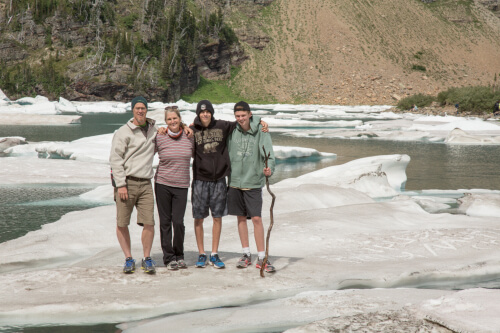
Yes, she went there. The author with her husband Robb and her sons on an iceberg in the middle of the aptly named Iceberg Lake in Glacier National Park.
***
Photos by Robb Kendrick
Jeannie Ralston is the editor and co-founder of NextTribe. Ralston’s work as a journalist has been published in National Geographic, The New York Times, Conde Nast Traveler and many other magazines. Her years growing lavender was the subject of her memoir, The Unlikely Lavender Queen, published by Broadway Books; her e-book, The Mother of All Field Trips, was about the three years she homeschooled and traveled with her children.
Further Reading
Letting Go, Sixth Edition: A Parents’ Guide to Understanding the College Years

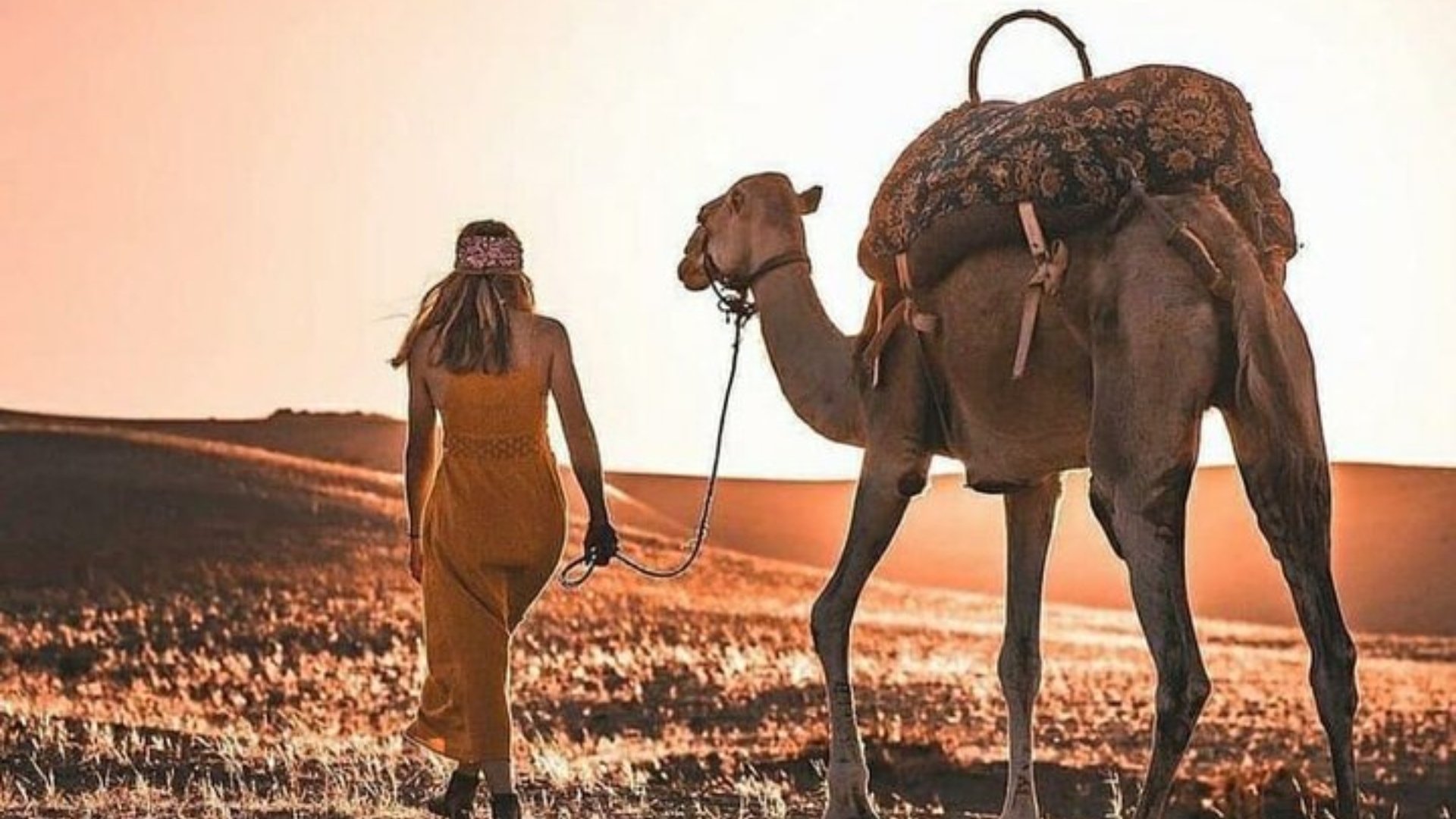





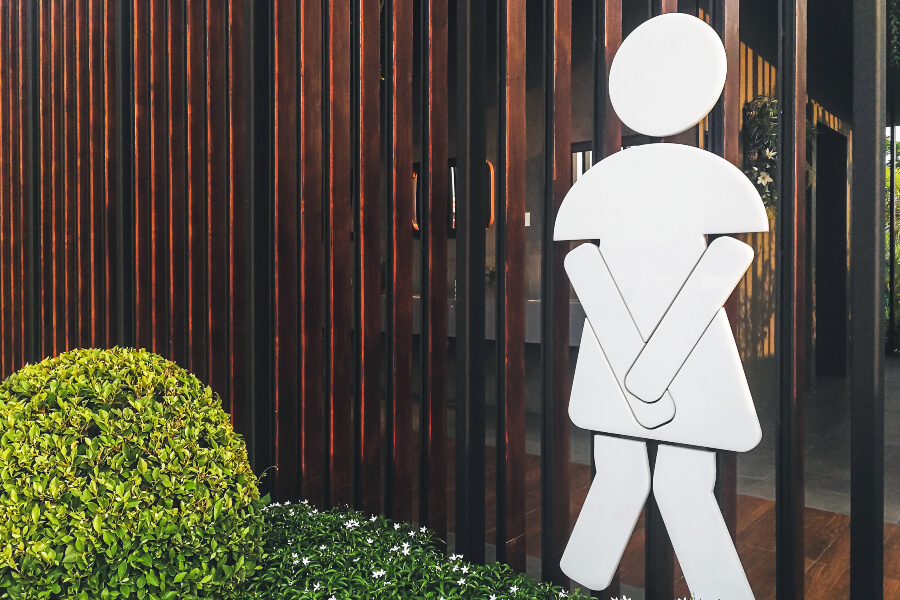


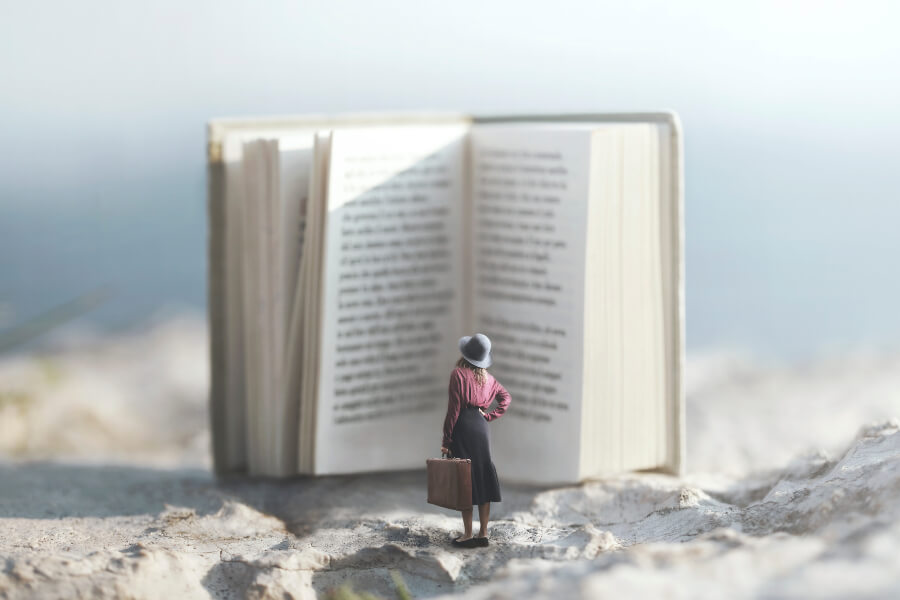
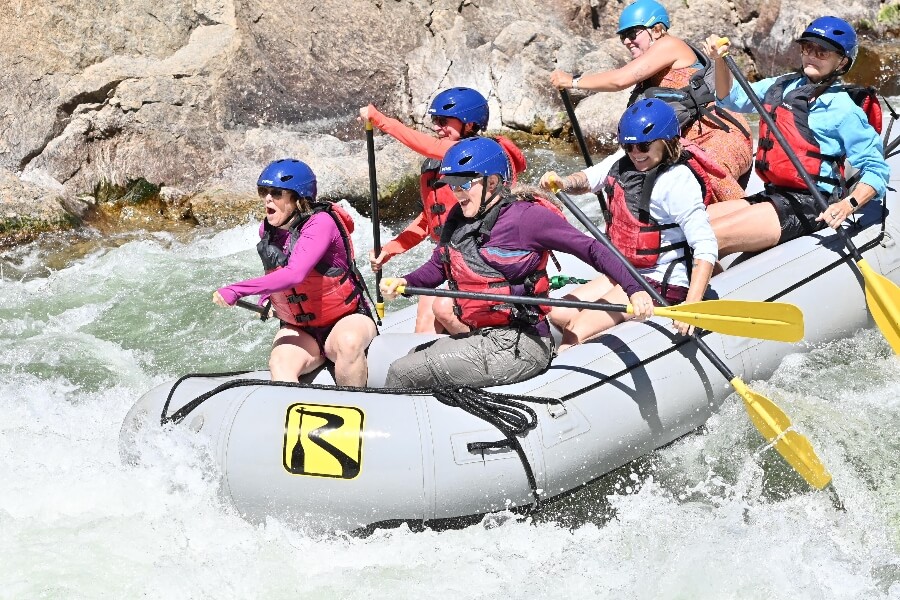
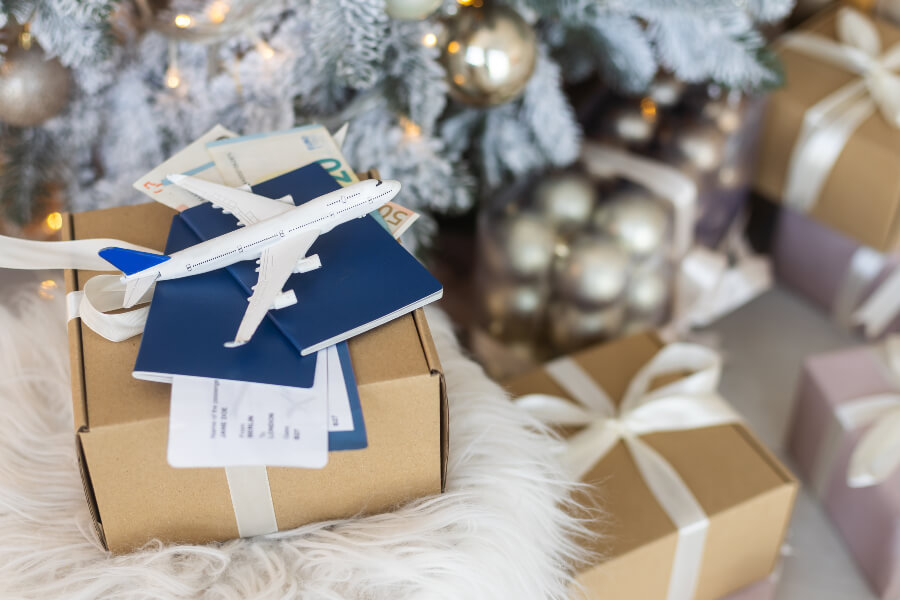
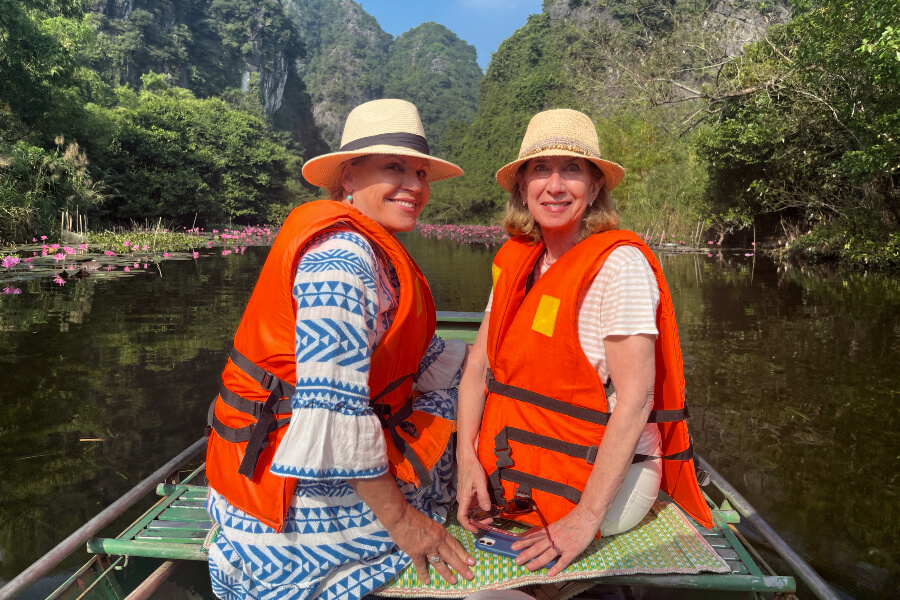
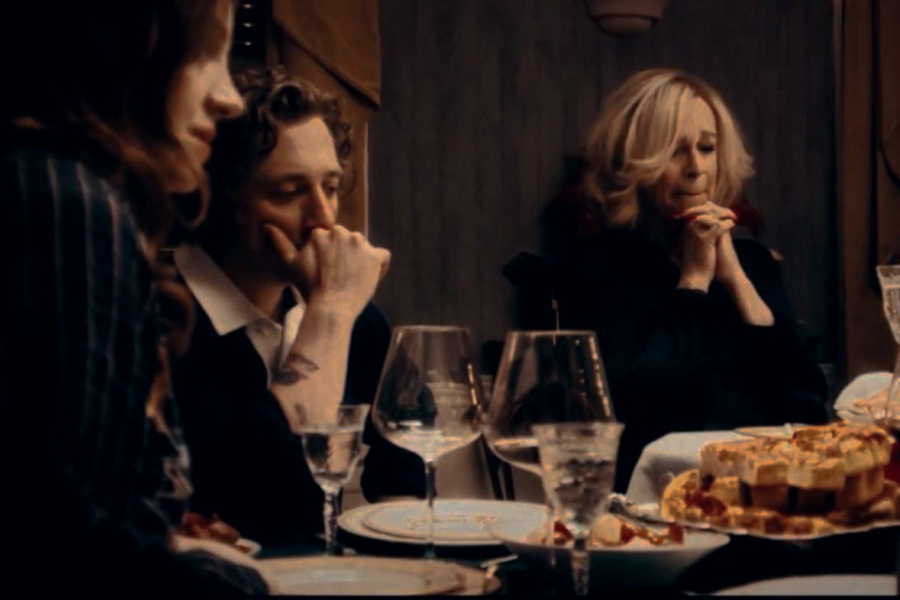
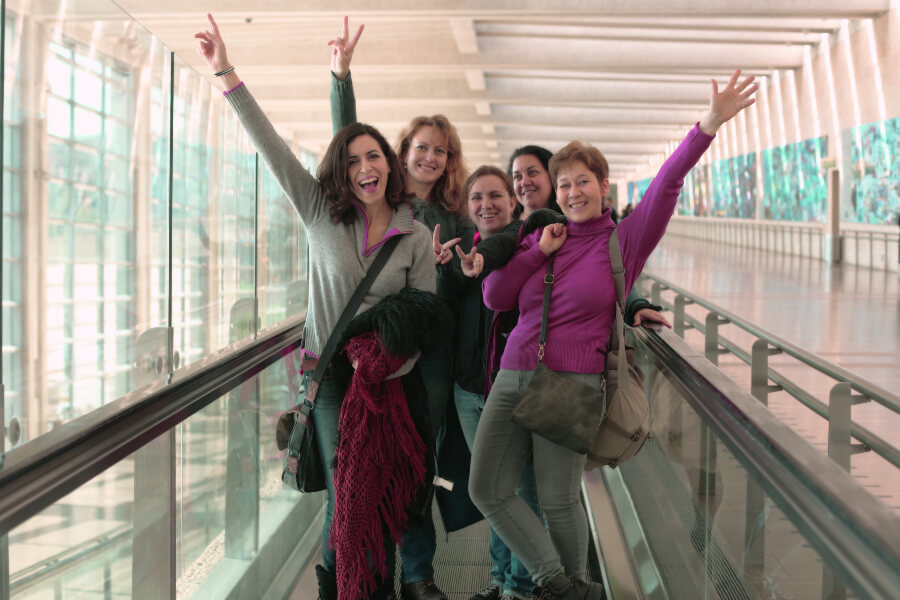
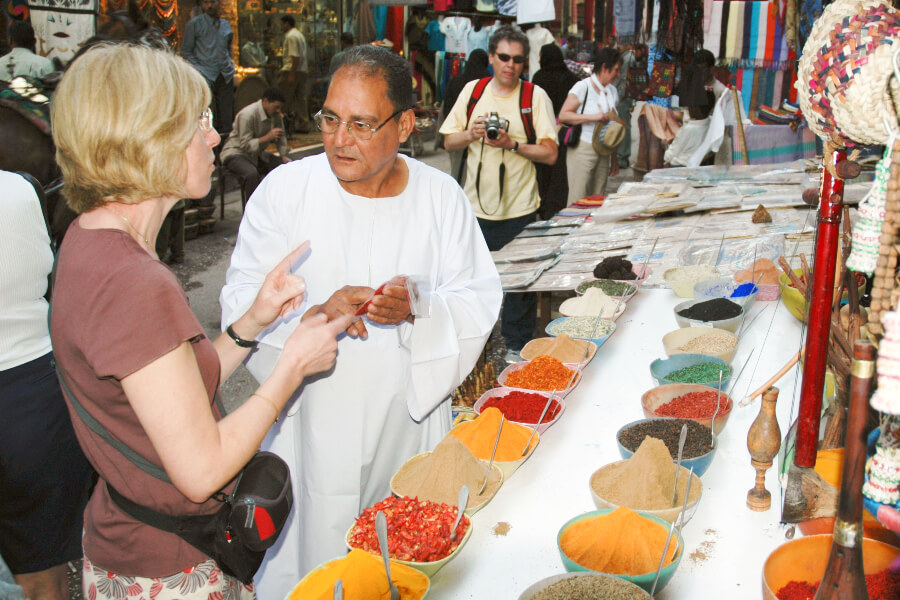
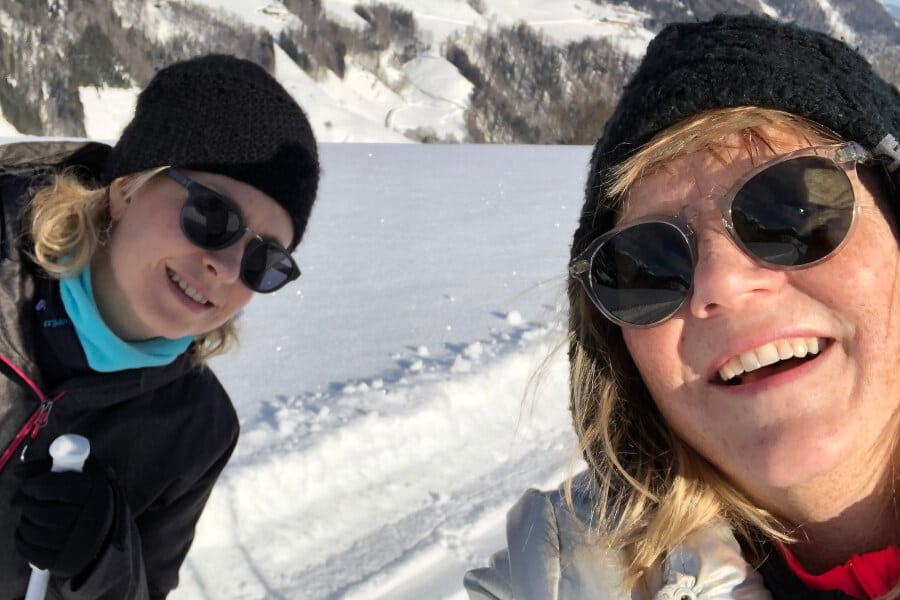
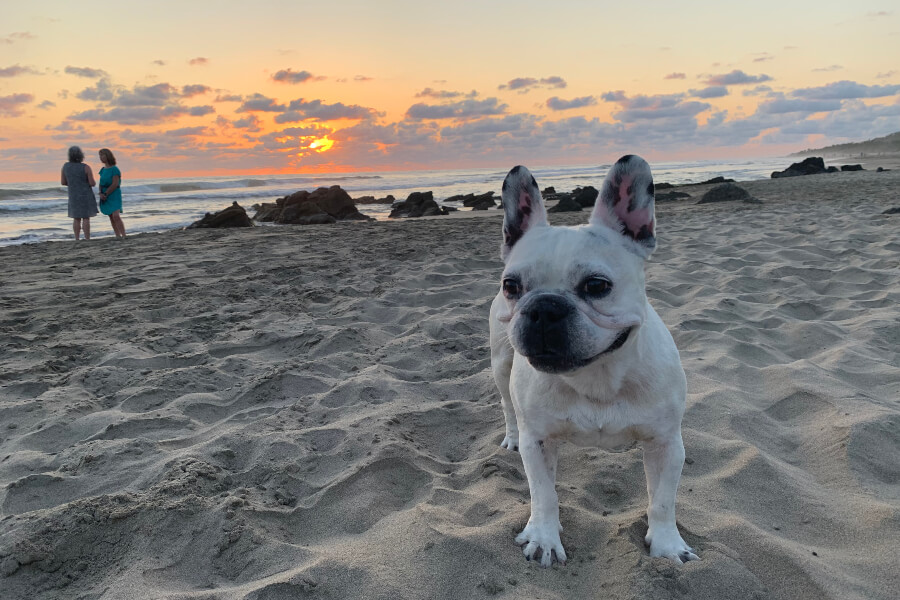
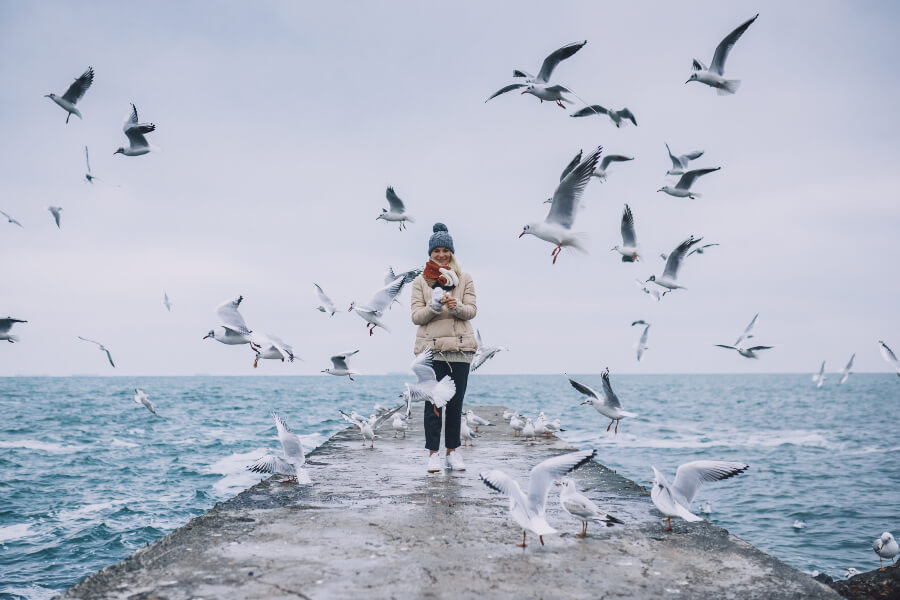
0 Comments